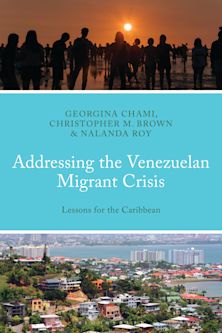- Home
- ACADEMIC
- Politics & International Relations
- Politics - Other
- Altered States
Altered States
International Relations, Domestic Politics, and Institutional Change
Andrew P. Cortell (Anthology Editor) , Susan Peterson (Anthology Editor) , Eva Busza (Contributor) , Jeffrey T. Checkel (Contributor) , Lisa Conant (Contributor) , Darren Hawkins (Contributor) , C S. Eliot Kang (Contributor) , David Richards (Contributor) , Martin J. Smith (Contributor) , Christopher Wenk (Contributor)
Altered States
International Relations, Domestic Politics, and Institutional Change
Andrew P. Cortell (Anthology Editor) , Susan Peterson (Anthology Editor) , Eva Busza (Contributor) , Jeffrey T. Checkel (Contributor) , Lisa Conant (Contributor) , Darren Hawkins (Contributor) , C S. Eliot Kang (Contributor) , David Richards (Contributor) , Martin J. Smith (Contributor) , Christopher Wenk (Contributor)
This product is usually dispatched within 2-4 weeks
- Delivery and returns info
-
Flat rate of $10.00 for shipping anywhere in Australia
You must sign in to add this item to your wishlist. Please sign in or create an account
Description
Challenging dominant assumptions in international relations, Altered States demonstrates that national political institutions change more frequently_and less dramatically_than is commonly thought and with important consequences for the political landscape. Combining theory with solid empirical research_including archival evidence and interviews_the contributors explore the causes and consequences of institutional transformation in the United States, Western and Eastern Europe, Russia and the former Soviet Republics, and Cuba. Altered States highlights the dynamic and interactive relationship between national political institutions and reform-minded policy entrepreneurs, a perspective that will interest scholars and policy makers alike.
Table of Contents
Chapter 2 European Judicial Review and National Institutional Change
Chapter 3 Explaining the Lack of Institutional Change in Cuba
Chapter 4 Altering the U.S. State: Post-Vietnam Changes in Foreign Policy Authority
Chapter 5 Institutional Change and Post-Communist States: The Transformation of Civilian Control in Poland, Hungary, the Czech Republic, and Russia
Chapter 6 Institutional Dynamics in Collapsing Empires: Domestic Structural Change in the USSR, Post-Soviet Russia, and Independent Ukraine
Chapter 7 Institutionalizing the Regulation of Inward Foreign Direct Investment
Chapter 8 Breaking the Policy Bias: Windows of Opportunity and the Realignment of Structural Constraints in Three Government Departments
Chapter 9 The Causes and Consequences of Institutional Change
Product details
| Published | 13 Feb 2003 |
|---|---|
| Format | Paperback |
| Edition | 1st |
| Extent | 250 |
| ISBN | 9780739106068 |
| Imprint | Lexington Books |
| Dimensions | 227 x 154 mm |
| Publisher | Bloomsbury Publishing |
About the contributors
Reviews
-
Altered States is an important study of the sources of institutional change. It rightly focuses on advancing our understanding of incremental change and intentional design. The rich variety of empirical examples highlight the important consequences of institutional reforms.
Elizabeth Kier, University of Washington
-
[This book] will open many avenues for conducting new research into a field of international relations and comparative politics, and will further sharpen our understanding of the politics of this world in which institutions clearly "matter."
H-Net: Humanities and Social Science Reviews Online
-
Over the years scholars of international and comparative politics have made great progress in understanding the impact of state structures and institutions on foreign and domestic policy. They often associated dramatic changes in policy with prior institutional changes, yet left open the key question of when and why instituttions themselves change. In this pathbreaking volume, Andrew Cortell and Susan Peterson have assembled a collection of high-quality essays addressing this question in a wide range of issue-areas and with a geographical scope that encompasses the European Union, the former Soviet Union and Eastern Europe, Cuba, the United States, Britain, and Japan. The chapters are theoretically sophisticated, empirically rich, and the volume as a whole constitutes an important advance in our understanding of institutional change.
Matthew Evangelista, Cornell University, editor of Italy from Crisis to Crisis: Political Economy, Security, and Society in the 21st Century



































